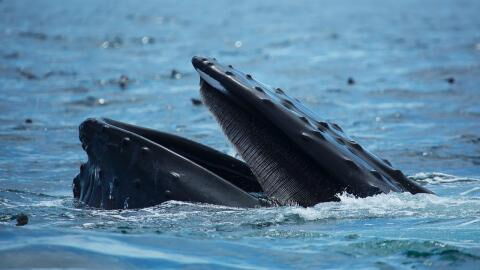Little sleep, but a lot of elbow grease, this is what it took for a team of about thirty people to rescue a humpback whale that had washed up on the Mar del Tuyu beach in Argentina.
Discover our latest podcast
This tourist spot, located some 125 miles from the capital Buenos Aires, is not yet renowned for its cetaceans. But on Saturday morning, a seven-ton humpback whale was discovered on the sand, not far from the water. Too exhausted by its efforts to return to the sea, it owed its rescue only to the presence of the local coastguard and teams from the Mundo Marino Foundation.
For twenty-eight hours they dug under the animal to try to slide it towards the water, before seeking the help of an excavator equipped with a harness to lift the whale. While some took care of the handling, others sprinkled the whale with water so that it did not dry out.
Several attempts needed
The first try to put the cetacean back into sea was unsuccessful, since it was too exhausted for its fins to propel it offshore. The Argentine rescuers therefore chose to use a harness to first lift the animal and move it away from the shore before towing it out to sea with a tug, usually used to tow ships that are in trouble. This was all done under the encouragement of the crowd.
Despite its fatigue, the humpback whale did manage to resume its journey. The presence of cetaceans along the Argentine coasts is not surprising since this species comes to breed in the warm waters of the equator during winter, after migrating in the autumn from the cold waters of the seas of the poles where they feed. Humpback whales can travel up to 15,500 miles a year.
It is not uncommon for these large cetaceans to come aground along the coasts and the reasons for this can be numerous. Injured, sick or weakened animals sometimes do not have the strength to swim and can drift onto our beaches. However, human activity at sea, such as drift netting or boats, can have a deleterious effect on cetaceans, forcing them to move closer to the shore until they are trapped by shallow water.















